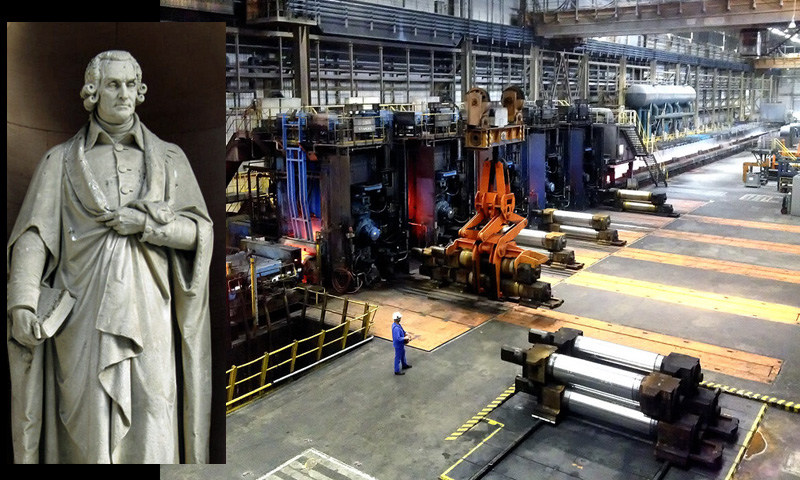
Adam Smith & free trade
Born in Fife, Adam Smith (1723-90) immersed himself in philosopy, ethics, logic theology and jurisprudence at the Universities of Glasgow and Oxford, as well as in deep conversations with leading intellectuals at his London clubs. The resultant published works ~ ‘The Theory of Moral Sentiments’ (1759) and ‘An Inquiry into the Nature and Causes of the Wealth of Nations’ (1776) ~ were so weighty and thought-provoking, that not only Britain’s but Europe’s economic policies were revolutionised.
Smith lived in a time of extraordinary social transition to scientific thinking and the Industrial Revolution, which were creating new ways to gain wealth. He noted that this could be accelerated if: (a) labour was divided into single-process tasks leading to skilled, fast, mass productivity, and (b) government restrictions on trade (protectionism) were lifted, thereby encouraging free trade with foreign countries. This move away from individual craftsmen to factories entailed the development of consumerism.
Smith did not foresee some of the problems that eventually arose from taking his ideas to new lengths. However, his thorough analysis of human behaviour was driven by his desire to see an improvement in the lot of the common man and consequently the country as a whole. In this regard, Smith’s influence certainly succeeded.
(Images LtoR: Adam Smith statue [cropped] by Colin Smith at geograph.org.uk / CC BY-SA 2.0, factory floor by Daniel Foster at Flickr.com / CC BY-NC 2.0)
